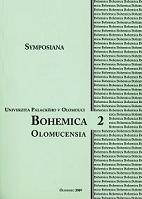STŘEDOEVROPSKÝ KABARET JAKO MULTIKULTURNÍ PROSTOR K HISTORII A PROMĚNÁM KONOTACÍ JEDNOHO POJMU
CENTRAL EUROPEAN CABARET AS MULTICULTURAL SPACE (SOME NOTES TO THE HISTORY AND CHANGES IN CONOTATIONS OF ONE PHENOMENON)
Author(s): Vladimír JustSubject(s): Literary Texts
Published by: Univerzita Palackého v Olomouci
Summary/Abstract: We can rarely follow such changing reception in the connection to modern phenomenon as "multicultural" term cabaret. Not only in European but also in our language context. In Czech countries there never formel continual tradition of the cabaret as in our neighbourhood, in the countries with a strong cabaret tradition. comparison with Berlin, München, Vienna, Budapest, Warsaw and Paris we had rather "the theatre of cabaret type" (as Osvobozené divadlo, Semafor). We haven't long, continual and famous tradition of cabaret as French or German. With the exception of Jaroslav Hašek, there were not so strong individualities as Alfred Jarry, Jaques Prévert, Boris Vvian, Christian Morgenstern, Frank Wedekind, Max Rreinhardt, Kurt Tucholski, Walter Mehring, Marlene Dietrich, Karl Kraus or Helmuth Qualtinger. The boom of the term cabaret came in the times when it manifested new trends of the art (in Berlin expresionism – see Neopatetic cabaret, in Zurich dadaism – Cabaret Vvoltaire etc.). Later the term cabaret fused rather with the image of sentimental local-patriotism, and there were added noble refined adjectives as "literal" or "art" cabaret (Červená sedma) or later dutiny the communist era there were contrived new alternative names (scenic pop-up picture book, text-appeal, zceniv party, recitale etc.). Only after the fall of communism the new generation without the connections with the roots in karneval tradition of European culture of laugh, and with that experience uses the term cabaret (in connection with the roots in carneval tradition of European culture of laugh, and with the French word "le cabaret" – as a pub, inn) in its original, still declined non-demeaning sense. The name for this type of theatre activity is connected with the ostenze of the individuality of the author and interpreteur and the main topic "here and now" (in the sense of the term "presentness" of the German theatreologist Hans-Thies Llehmann). Semantic Parallel of Kafka's Lyrics and French Existentialism Marcel Forgáč Kafka's specific "approach" to human being problem causes his work is often compared to existentialism philosophy. The most significant parallel between Kafka's and philosphy-literary initiative of French existentialists we can see in the specific transformation of human being as a problem. both poetics the characters are autonomuous, individual personas who despite their rationality and character of self-reflection collide with general disconnectedness of the system around them. Kafka's geometer K., or Jozef K, Camus's Mersault, Sarter's Antoine Roquentin or Matheiou Delarue represent personas wrested out of social relations, reflecting their status of individuality without these relations, but at the same time they figure as personas who are not existentially determined by social and private relations. Insolvability, steadiness and stoutness of this conflict and final abalienatio of individual individuum is caused by his uniqueness.
Journal: Bohemica Olomucensia
- Issue Year: 1/2009
- Issue No: 2
- Page Range: 80-86
- Page Count: 7
- Language: Czech

